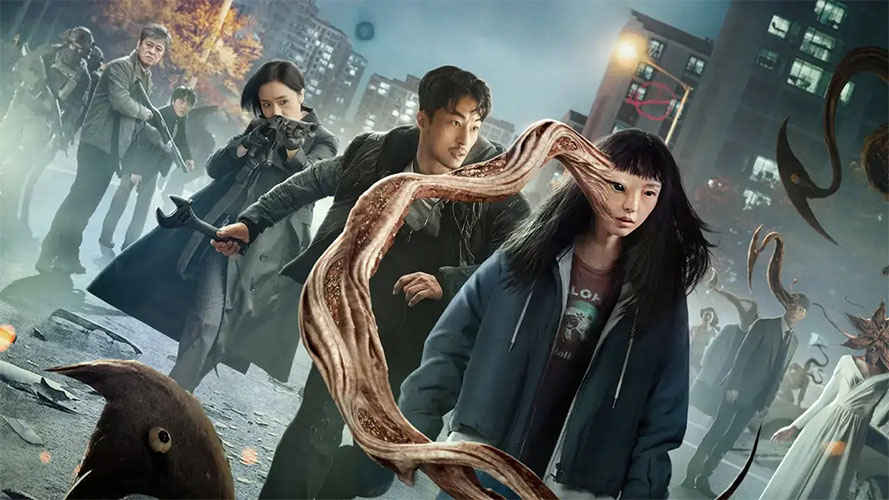“Parasyte: The Grey” (2024) has taken the world by storm, offering a fresh and thrilling take on the classic sci-fi horror genre. This Korean drama, directed by the acclaimed Yeon Sang-ho, spins a decidedly human tale amidst an alien invasion narrative that has captivated audiences globally.
The series is a spin-off of the Japanese manga “Parasyte,” and it masterfully balances elements of sci-fi, horror, and action, all while providing a depth of character development that adds a sense of realism not always found in adaptations. The story unfolds in a world where parasitic aliens rain down from the sky, taking over human brains. The protagonist, Jeong Su-in, portrayed by Jeon So-nee, becomes host to a parasite named Heidi after a fatal accident. This leads to a unique co-existence, as Heidi was unable to completely take over Su-in’s brain, leaving both entities fully conscious and intertwined in a peculiar symbiosis.
Jeon So-nee’s performance is a standout, seamlessly switching between the vulnerability of Su-in and the calculated coldness of Heidi. Her dynamic with Seol Kang-woo, played by Koo Kyo-hwan, adds layers of complexity to the narrative, as he serves as an unexpected voice of reason between the two. The trifecta is completed by Lee Jung-hyun, who portrays Choi Jun-kyung, the leader of Team Grey. Although initially over-the-top, Lee’s performance finds its footing as the series progresses, providing a counterbalance to the intensity of the main characters.
What sets “Parasyte: The Grey” apart is its philosophical overlay on the original work. It delves into themes of existence, connection, and what it means to be human. The drama does not shy away from exploring the philosophical aspects of human existence, suggesting that it is the connections with fellow humans that drive our very being.
The special effects are nothing short of spectacular, avoiding the pitfalls of many live-action adaptations that suffer from poor CGI. The visceral body horror is accentuated by squelching sounds and the eerie cries of the parasites, immersing viewers in a world that is as terrifying as it is fascinating.
In conclusion, “Parasyte: The Grey” is a testament to the potential of Korean dramas to transcend cultural barriers and deliver stories that resonate with audiences worldwide. Its success lies in its ability to blend high-quality production values with a narrative that challenges viewers to reflect on their humanity. Whether you’re a fan of the original manga or new to the story, this drama is a must-watch for anyone seeking a thought-provoking and entertaining experience.
For those who have watched the series, the last 10-15 minutes of the final episode are particularly impactful, leaving a lasting impression and a desire for more. It’s a series that not only entertains but also invites contemplation, making it a standout addition to the Korean drama landscape.
